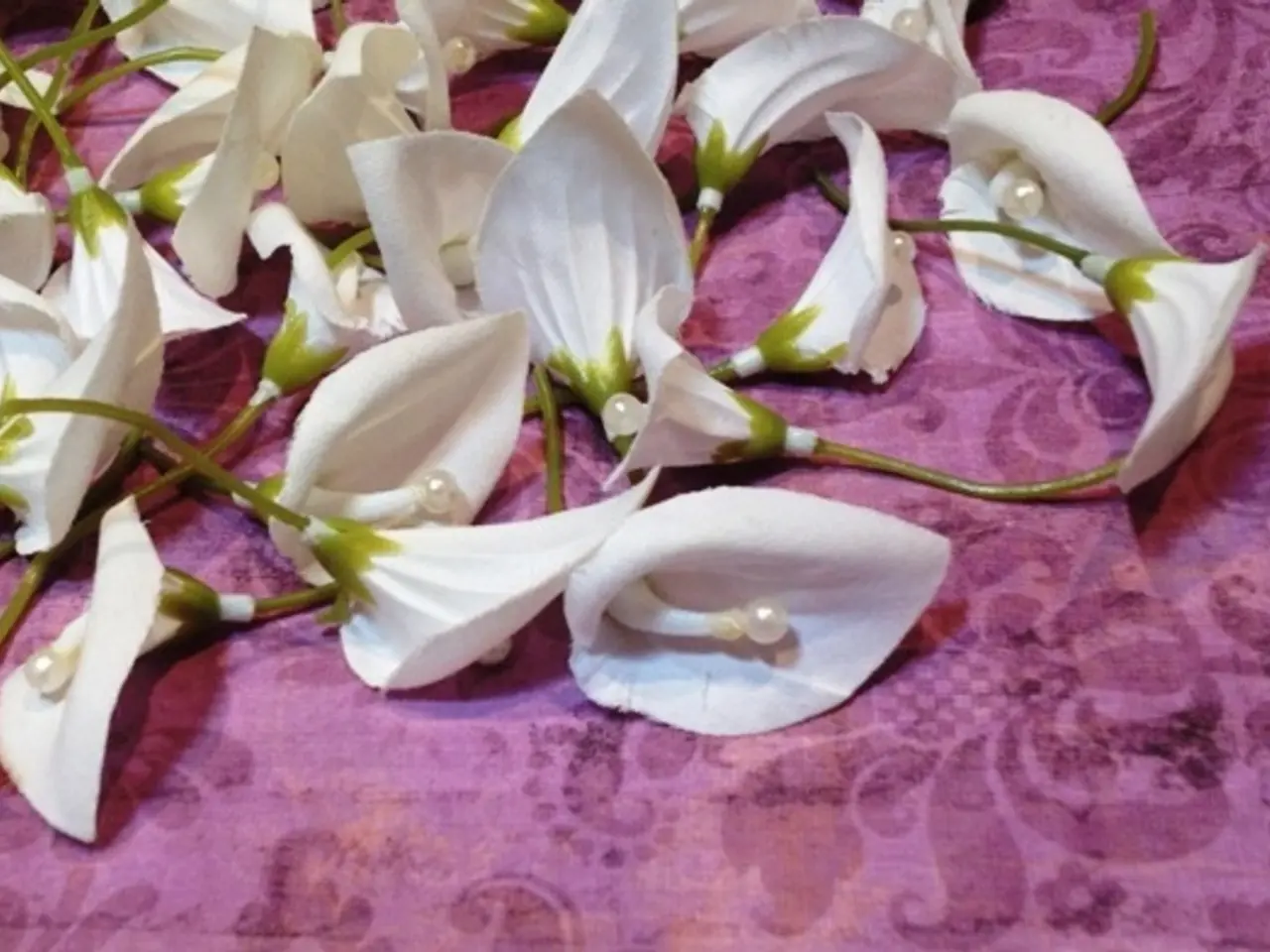Newborn Care Traditions in Nigeria Elucidated
In the vibrant and culturally rich nation of Nigeria, the care of newborns is a blend of time-honoured traditions and modern practices. This unique approach to parenting promotes the well-being of both the child and the family.
Newborns are dressed in traditional clothing made of vibrant fabrics, believed to protect them from evil spirits and promote good health. This is just one of the many customs that have been passed down through generations, shaping the way families care for their infants and protect them from harm.
Superstitions and taboos play a significant role in newborn care in Nigerian culture. For instance, the baby's hair should not be cut until they turn one, as cutting it too early may bring bad luck or hinder the baby's development. Strangers are not allowed to hold or touch the newborn during their first month of life, as it is believed that strangers may transfer negative energy or bring harm to the baby.
Baby-wearing is an age-old practice in Nigeria, offering benefits such as promoting bonding, keeping the baby secure, and helping regulate their body temperature. Another common practice is the massaging of breasts or consuming special foods to promote lactation.
Embracing and respecting Nigerian traditions while adapting to modern practices ensures a balance between cultural heritage and progress in child-rearing. For example, among the Igbo people, a key tradition is "Omugwo," where the grandmother or mother of the new mother comes to stay and care for both the mother and newborn for about a month postpartum. This practice supports maternal recovery and ensures knowledgeable newborn care, symbolizing respect for maternal wisdom and family bonds.
Traditional newborn care often involves exclusive practices around cord care, thermal care (keeping the baby warm), and certain dietary or herbal regimens for both mother and baby, though specifics vary by region and ethnicity. Nigerian newborns are bathed using traditional techniques involving herbs and natural products, believed to cleanse the baby's body and protect against spiritual impurities.
Despite the influence of modernization and globalization, traditional beliefs and practices still hold strong in many Nigerian communities, particularly in rural areas where cultural traditions remain deeply rooted. Breastfeeding is highly encouraged in Nigerian culture, with mothers believing that breast milk provides essential nutrients and builds the baby's immunity.
One prevalent superstition is the evil eye, known as "ayo," which is a widespread belief in Nigerian culture. Parents take actions such as using charms or amulets and seeking the assistance of traditional spiritual leaders to protect against it. By honoring and adopting these traditions, parents contribute to the preservation and celebration of their cultural heritage, instilling a sense of pride and belonging in children and fostering a rich understanding and appreciation for their Nigerian roots.
In summary, Nigerian ethnic groups like the Igbo emphasize postpartum maternal and neonatal care through customs like Omugwo, supported by culturally specific practices in bathing and early care to promote health and wellbeing of the newborn and mother. More detailed ethnographic specifics would require focused cultural studies beyond the current search data. If you are interested in learning more about newborn care customs in other Nigerian ethnic groups such as Yoruba, Hausa, or others, I can help find deeper ethnographic or anthropological sources.
- In Nigeria, traditional clothing, rich in vibrant patterns, is used to dress newborns, with beliefs suggesting it offers protection against evil spirits and ensures good health.
- Customs such as not cutting the baby's hair until their first birthday are passed down through generations, reflecting the significance of superstitions and taboos in newborn care.
- Baby-wearing holds historical value in Nigeria, contributing to the promotion of bonding, security, and body temperature regulation for infants.
- Massaging breasts or consuming special foods to enhance lactation is a common practice in Nigeria, signifying an emphasis on nutrition during motherhood.
- By blending traditional practices with modern ones, Nigerian families cultivate a harmonious balance between cultural heritage and progress in parenting approaches.
- Traditional practices include exclusive cord care, thermal care, and dietary or herbal regimens, although specifics may vary across regions and ethnicities within Nigeria.
- Newborns in Nigeria undergo bathing using unique traditional techniques involving herbs and natural products to cleanse the baby's body and protect against spiritual impurities.
- Despite the influence of modernization, traditional beliefs like the evil eye ("ayo") continue to hold significance in many Nigerian communities, necessitating the use of charms, amulets, and spiritual leaders to protect children.




